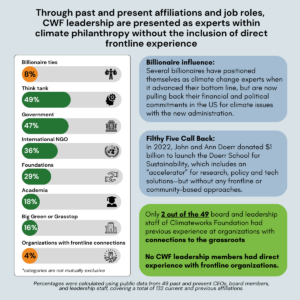You’ve probably noticed that education has been in the news a lot lately.
- Ten years after Hurricane Katrina and the switch to charters and new teacher pipelines, education advocates are weighing test score improvements against persisting inequities in New Orleans
- Parents in Chicago have gone on hunger strike for nearly a month to protest the closing of Dyett High, a predominantly Black traditional public school on the South Side.
- The District of Columbia is launching an all-boys college preparatory school to improve educational outcomes for Black and Latino boys, inspired by a Chicago charter school network.
- Meanwhile, Washington State’s Supreme Court has ruled that charter schools are unconstitutional.
Clearly we haven’t yet reached a national consensus on the best way to ensure every kid in this country has the opportunity to thrive. But what does philanthropy have to do with the ongoing debate over education? As it turns out, a whole lot.
From 2000 to 2010, the top U.S. grantmakers in education nearly doubled their giving, going from $486.6 million to $843.7 million. The vast majority of these new funds have gone toward charter school development, teacher training and recruitment, education venture capital and other reform efforts. D.C. alone attracted $31 million ($705 per student) in 2010, a larger investment than in any other school district nationally.
Philanthropic interest in education is nothing new, of course. In the early 20th century, for example, Sears Roebuck president Julius Rosenwald donated money to build over 5,000 schools in partnership with rural communities of color in the segregated South. However, it’s clear that the last 15 years have seen a tidal shift in the way philanthropy today approaches educational giving.
Many of these new education efforts share a common thread of what might be called “market-based” strategies: approaches that use public funding to create alternatives to traditional public schools, with tools like charter schools, school vouchers and educational management organizations.
Critics say these reforms endanger public education by sapping resources where they’re needed most and undermining public oversight. Proponents insist that expanding public education choices is the best way to meet student needs and compel flagging schools to improve.
At NCRP, we recognize that there’s a vicious cycle of inequity when it comes to educational access and opportunity, and our research shows that philanthropy has an important role to play in breaking that cycle by focusing on marginalized groups and investing in organizing, advocacy and civic engagement.
So what’s the best approach when it comes to creating fair, inclusive, desirable outcomes for all our kids at school? Are market-based approaches an important part of the solution, or do they cause more harm than good?
NCRP invites you to explore this important question with us. On September 29th, we’ll be hosting our first Philamplify debate, asking, “Can market-oriented reform strategies advance equity and empowerment in education?” Brandon Johnson from the Chicago Teachers Union and Robert Pondiscio from the Thomas B. Fordham Institute will debate the question, moderated by NCRP Board Chair and Winthrop-Rockefeller Foundation President Sherece West-Scantlebury. The program will also include robust discussion from a panel of philanthropic leaders in the education sector: Lori Bezahler, President of the Edward W. Hazen Foundation, Deborah McGriff, Managing Director at NewSchools Venture Fund, and Jennifer Esterline, Project Consultant for the Texas Education Grantmakers Advocacy Consortium.
The event will be held at the Pew Charitable Trusts in Washington, D.C., and broadcasted live online from 3-4:30 PM. A complimentary reception with beer and wine will follow immediately. Don’t miss it! Register for FREE here and join the conversation in person or online today.
Ben Barge is a field associate at the National Committee for Responsive Philanthropy (NCRP). Follow @NCRP on Twitter and join the #PhilamplifyDebate conversation!
































































































































































































































































































































































































































